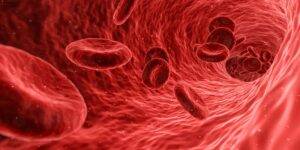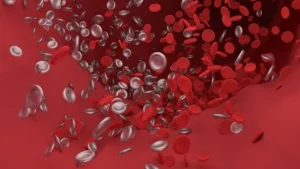Are you aware of a popular comment that “every cell in the human body is replaced at an interval of seven years?” Well, doesn’t that sounds cool? However, when researchers went forward to decipher the trueness of such a comment, they found something deeper. Certain human body cells get replaced within a few months, while others take as long as seventy years to renew.
This brings us to the question, “how often does the human body replace all cells?”
As Olaf Bergmann (principal researcher, Department of Cell and Molecular Biology, Karolinska Institute, Sweden Stockholm) explains, the human body cells in the gut and the skin takes a few months to replace. In contrast, the ones in the liver take it slow. He and his colleagues analyzed liver tissue through radiocarbon dating technology, finding that most liver cells get replaced within three years.

Further, Skeletal cells take around 10 years to replicate. Some parts of the brain, like the hippocampus, undergo renewal at a rate of 1.75% yearly, as per a study in 2013. Also, another study states that some neurons in Striatum regenerate at a similar interval. However, other types of neurons stay with a person for their entire lifetime.
Bergmann further added there are distinct human body cells capable of rejuvenation but do not undergo entire replacement in their lifetime.
Why Do We Age If Cells Are Getting Replaced And Rejuvenated Every Now And Then?
Now comes the main question. If some cells undergo complete rejuvenation and replacement regularly, then why do we grow old? The scientists are not ready to sit back and have already come up with an answer.
The secret lies in the mutation of cellular DNA within the body.
Research team found DNA damage is the most degenerative process causing humans to age. But how? DNA damage of human body cells affects cell-based transcription, cellular senescence, signaling apoptosis, or somatic mutations.
Facts About Human Body Cells Getting Replaced and Rejuvenated
Here is complete know-how about various human body cells getting replaced and rejuvenated:
- The human heart takes a long time to renew. Only 40% of the cardiomyocytes (cells known to control the contracting force in the heart) undergo replacement throughout their life.
- A human is born with 100,000 hair follicles on their head, and each one is sure to go through a certain growth cycle.
- There is around 100 hair falling every day, so hair follicles are always in different stages of their hair cycle. This brings us to the conclusion that not all parts of your scalp will age the same.
- The liver has an amazing ability to regenerate. When doctors remove a portion of the liver in a living human, the cells divide and regrow as lost tissues within days. The organ grows back to its original size within six to eight weeks. This brings science to another theory. There is no need for a complete liver transplant. Living liver donation is also a viable option that people can opt for. The doctors will remove a portion of the living liver, and the person will experience regrowth in a few weeks.
- Cells in the intestine and stomach, being subjected to so many corrosives, have a life span of five days.

Fast Facts About The Human Body Cells
Cells come in different shapes and sizes, and most of them are colorless. The biggest human cell has a diameter of 80 micrometers. Find out more:
- Trillions of cells in the human body add up together to form 200 major types.
- Unique proteins in different cell types make them perform various tasks.
- The red blood cells carry oxygen, while the white blood cell is all set to kill germ invaders.
- Nerve cells are here to send electrical and chemical messages, producing movements and thoughts.
- Cells in the intestine are set to release molecules that can digest food.
- Cells inside the human body move around. The cancer cells do move from one tissue to another. Also, white blood cells are ready to attack invaders and heal wounds.
- A single cell divides into two through a process called mitosis. Thus giving birth to new cells.
- Apoptosis is a process of programmed cell death. It also serves a protective role in the human body.
That is all about the human body and its cell, amazingly organized and packed together, helping with proper growth. Each cell serves a particular function and considers the overall body’s well-being. And yes, they take more than seven years to get completely replaced.
To get a more clear picture of the human body and its abilities, you can go through “Blind People Can Sense Their Heartbeats Better Than Ones With Sight,” “The HTR2B Gene Might Be Making You Angry,” and “Researchers Found Fast Beating Heart To Trigger Anxious Behavior In Mice.”



